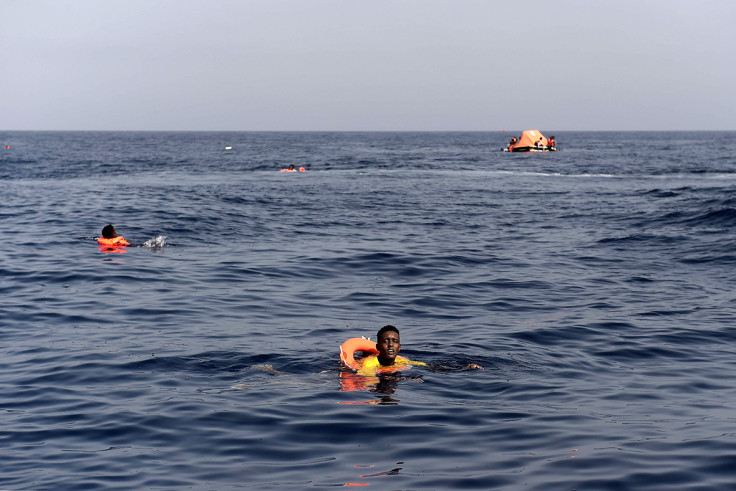Third shipwreck in three days pushes Mediterranean death toll to over 4,600 this year
Figures for the first half of November saw five times as many deaths as the whole month in 2015.
More than 100 people are feared dead in the Mediterranean Sea in the third shipwreck to occur in those waters since Monday (14 November 2016). The number of those who have died or gone missing attempting to reach safety in Europe has reached a new record number, with figures released today (17 November) putting the death toll at 4,621.
According to the International Organisation for Migration (IOM), at least 4,000 deaths have occurred on what is known as the central Mediterranean route, departing mostly from Libya and occasionally Egypt, towards Italian shores. In the past three days, at least 340 people are feared to have died in the Mediterranean after three shipwrecks were recorded off the coast of Libya.
The death toll is the highest on record and is set to increase still in the next six weeks until the end of the year. The figures for the first half of November registered five times as many deaths as the entire month of November last year.
Speaking to IBTimes UK, IOM spokesperson Flavio Di Giacomo said the issue is not the amount of resources employed in rescue operations.
"The Mediterranean Sea has never been as patrolled as this year," he said, listing the different organisations operating in international waters, from the Italian Coast Guard and Navy, to EU-backed Operation Triton, to various non-governmental organisations such as Médecins Sans Frontières and Save the Children.
The problem, said Di Giacomo, was the instability and violence in Libya, where human traffickers face little risk in exploiting people's hopes for a better life across the sea.
The amount of people who lost their lives making the crossing reached an initial record in 2014, with 3,279 recorded by the IOM, and again in 2015, when the number of people feared dead or missing reached 3,777. The Libyan Civil War worsened in 2014 when the government was forced to leave the capital Tripoli, leaving those who had come to Libya in previous years in search of a job or safety once again in a vulnerable position.

One of the people the IOM has helped to repatriate was Cisse, a 27 year old from Mali, who arrived in Libya in 2009 and decided to return home in March 2016 after he was detained by gunmen, beaten, shot in the leg and forced to pay $450 (£361) for his release.
But other people are not in a position to return home. "Some consider crossing the sea the safest option" said Di Giacomo. According to reports collected by the IOM, traffickers are increasingly less concerned with people's safety, forcing them to do the journey despite very rough seas, without providing GPS or mobile devices that would allow them to signal their position to rescuers.
Di Giacomo told IBTimes UK that one boat was put in the water without an engine, and was simply dragged by a boat to which it had been attached. Some of the survivors told the IOM that traffickers are urging them to make the journey as soon as possible, since the Libyan coastguards are undergoing an EU-sponsored rescue training programme that would make it harder for migrants to reach Europe.
According to Di Giacomo, avoiding all deaths at sea through means of rescue operations is impossible. He advocated for long-term policies offering migrants information about the dangers of the journey ahead as well as the provision of safe passages for people who seek to come to Europe, as this would effectively help combat the criminal organisations responsible for smuggling and human trafficking.
The IOM is also busy trying to fight a "toxic narrative" on migration, which casts a negative light on a phenomenon that was otherwise "historically overwhelmingly positive", as the organisation's director general William Lacy Swing said in a video message published on Wednesday.
Europe's demographic gap would require the arrival of migrants, meaning that society will become more ethnically diverse. "If we are preparing our people for that, it will go well" Swing said.
© Copyright IBTimes 2025. All rights reserved.






















